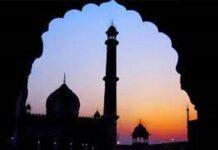IT is a fact of criminal psychology that whether the crime is detected or not, punished or not, the criminal carries the burden of the crime, which is far heavier, like in the case of the sailor who killed an albatross and carried it forever around his neck. It is possible to believe that the two court verdicts — that of the Supreme Court last November and of the CBI special court in Lucknow recently — have ended the Ram Mandir-Babri Masjid matter, technically speaking, in favor of the Hindus, and based on these two legal verdicts, there was no wrongdoing of any kind on the part of Hindu groups.
But there are two clear acts of crime committed by Hindu groups. The first was trespass on the inter- vening night of December 23-24, 1949, when the idols of Ram Lalla were stealthily placed inside the mosque, and the second was the day- time demolition of the mosque on December 6, 1992. The Supreme Court verdict declaring the site as belonging to the Hindu groups does not absolve them of the crime of tres- pass, nor does it clear them of the criminal act of demolition. The sec- ond verdict has only declared ‘lack of evidence’ against the 32 accused,
including former Union ministers LK Advani, Murli Manohar Joshi and Uma Bharti. This does not imply that there was no wrongdoing, or that there were no criminals who brought down the mosque.
The crimes remain as clear as day- light. And they remain a shameful aspect of the Ram temple agitation. Ironically, the BJP, which was at the head of the agitation and had gath- ered a crowd which its leaders could not control in Ayodhya on December 6, 1992, had the temerity and dishon- esty to move a no-confidence motion against the demolition. Using his rhetorical flourish, Vajpayee said on December 17, 1992: “I am ready to go one step ahead and ask those kar sevaks who were small in number to come forward and openly confess that they have demolished the struc- ture and for that they are prepared to face the music.” But by the time he ended his speech, Vajpayee almost justified the demolition. But not even his cunning rhetoric could wipe away the crime.
The CBI special court, which had conducted the trial regarding the demolition of Babri Masjid, ‘freed’ the 32 accused, including Advani, Joshi, and Uma Bharti, for ‘lack of evidence’. The prosecution pressed the charge of a meticulously planned crime amounting to a conspiracy. There were inherent weaknesses in a conspiracy charge because it requires to be proved that there was a clear chain of events that led from hatching the plan to executing it. Given the events preceding the gathering of around 200,000 people in Ayodhya and to the demolition that followed, it
would have been difficult to estab- lish the trail of the crime. But dem- olition remains a crime.
So, the sarcastic comments of critics that ‘no one demolished Babri Masjid’ and that it fell on its own show more anger and frustration, which is understandable, but which do not qualify to be a reasoned view. The unfolding of events on December 6 shows that the demolition was plausible given the overwhelming crowd which turned into a frenzied mob. The CBI special court did not condone the demolition because it had to fix the responsibility of who did it. This does not also mean that no one did it because the 32 accused
were acquitted.
Where legality ends, the moral and
the psychological burden of the criminals and conspirators begins. Should Advani, Joshi, Bharti, and the rest of the BJP and Vishwa Hin- du Parishad leadership own moral responsibility for the demolition? Should they apologize to the Muslim community that it was a moral wrong and a legal crime to have demolished a place of worship, whatever the dispute at stake? They should for their own sake and for the sake of communal amity in the country. Winning legal battles is not the end of the story. There is a need for gestures of goodwill to end the rancor that hangs in the air at the
end of legal feuds.
Of course, we recall Advani’s
statement at the end of the day on December 6: “This is the saddest day of my life.” Advani had clearly maintained that it was not the intention of the organizers of the karseva on December 6, 1992, to bring down the mosque. There are enough arguments, and one can even admit plausible ones, that Advani was just being hypocritical, that he was happy the mosque was destroyed. The critics of the then Prime Minister PV Narasimha Rao also claim that Rao, too, was happy in the cynical sense that the demolition had simplified the dispute. But beyond Machiavellian, or if you
prefer Chanakyan, calculations, there is a need for reconciliation between the contending communi- ties of Hindus and Muslims. The triumphalism of the Hindus must be reined in, and the resentment and despair of the Muslims should be addressed and removed.
The communal leaders on both sides have made the Babri Masjid issue a bitter dispute between the two communities. The Hindu groups can turn Ayodhya into a tourist spot, but it will never attain the sanctity of Rama’s birthplace because it was achieved through two acts of crime. There must be enough contrition on the part of Hindu groups before they can breathe easy and sleep well.






